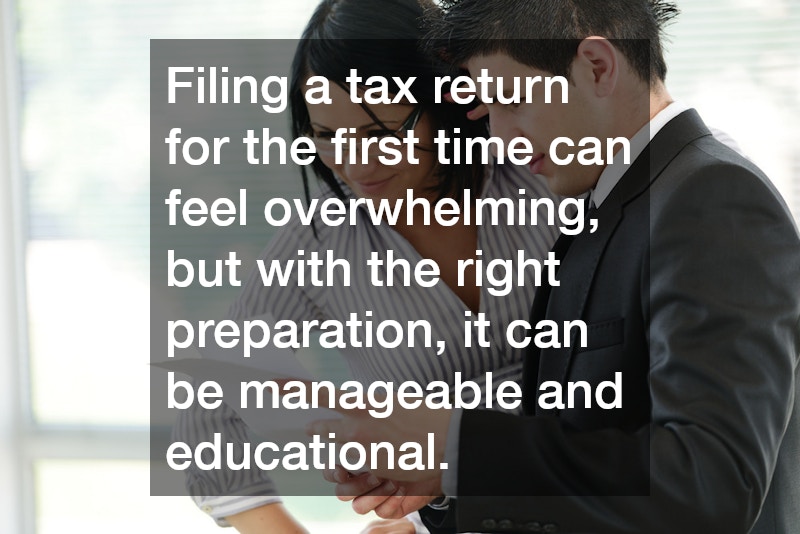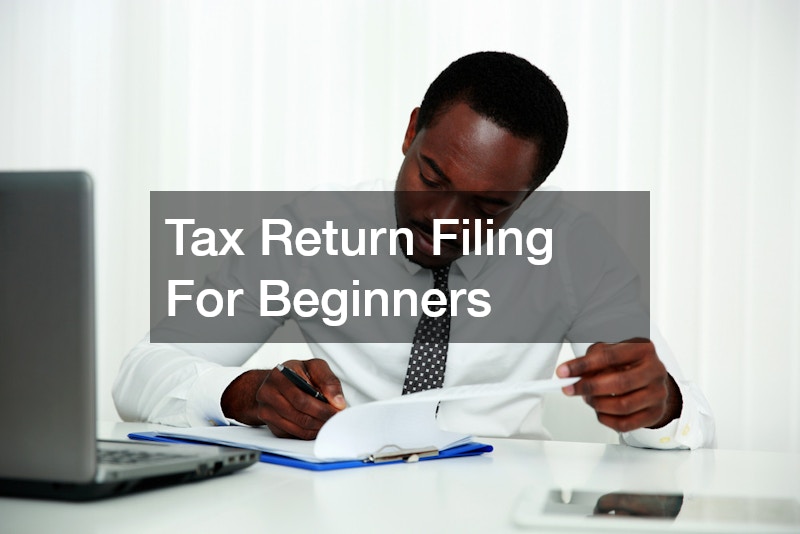Understanding how to file a tax return for the first time can be daunting for beginners. This guide will help demystify the process and provide the essential information you need to successfully file your tax return. Ensuring that you are well-prepared and informed will ease what often feels like a complex task.
Whether you are a recent college graduate or transitioning into self-employment, knowing your tax filing obligations is crucial. There are many myths and misconceptions about tax return filing that can make it seem more difficult than it actually is. This article aims to clarify these misconceptions and guide you through the necessary steps.
As you read, consider it an opportunity to learn not just about compliance, but also about financial literacy. The ability to manage your finances and tax obligations is a valuable skill. Let’s dive into the specifics of what you’ll need and how to navigate the tax filing process.
What Documents Do I Need to File My Tax Return?
1. Personal Identification Information
Having your personal identification information ready is a vital first step in filing your tax return. This usually includes your Social Security number, which is essential for any tax-related documentation. Previous year’s tax returns can also be beneficial as they provide context and historical data on your financial activities.
Ensuring the accuracy of this information cannot be overstated, as errors here can lead to delays or complications in processing your tax return. Double-checking this data ensures a smoother tax filing experience. All individuals listed on the return, including dependents, must have valid Social Security numbers.
2. Income Statements
Income statements are crucial as they reflect your earnings for the year and come in many forms, such as the W-2 or various 1099 forms. Every employer and payer must provide these documents to you by the end of January. Make sure to collect all income statements to report your total earnings accurately.
Each income statement provides detailed insight into the earnings you acquired in the past year, whether from employment, investments, or freelance work. They form the basis for your tax filing, as different income types may be taxed differently. Attention to detail with these documents ensures accuracy in your financial declarations.
3. Expense Records and Deductions
Expense records and deductions can significantly impact your taxable income and, subsequently, the amount you may owe or be refunded. Keeping precise and detailed records is a proactive approach in optimizing your tax return. Expenses related to healthcare, education, and business can often be deductible, lowering your taxable income.
How Do I File My Tax Return?
1. Choosing How to File: Online vs. Paper
When it comes to filing your tax return, you have the option of doing it online or using traditional paper methods. Online filing has become the preferred choice for many due to its convenience and efficiency. However, some still choose paper filing for reasons such as lack of internet access or preference for physical documents.
2. Step-by-Step Guide to Filing Online
Filing your tax return online begins with selecting a credible tax software or service. Popular ones include TurboTax and H&R Block, which also provide guided steps throughout the filing process. These platforms generally require you to create an account, after which you can begin inputting your financial data.
The software will prompt you through various sections, including personal details, income from different sources, and eligible deductions or credits. It’s important to have all documents handy for reference, ensuring you enter accurate and complete information. Once all information is entered, the software calculates your tax obligation or expected refund.
3. Understanding Deadlines and Avoiding Penalties
Each tax year, you must be aware of the filing deadlines to avoid penalties and interest charges. In the United States, the typical deadline for individual tax returns is April 15th, unless it falls on a weekend or holiday, in which case it may be extended. Missing this deadline can result in fines or interest accruing on any unpaid tax liabilities.
Filing a tax return for the first time can feel overwhelming, but with the right preparation and knowledge, it can be a manageable and even educational experience. Understanding your responsibilities and using the resources available to you will make this process smoother. Cultivating these skills early in your financial journey will provide long-term benefits. It’s advisable to engage with tax-related resources throughout the year, not just during tax season.
.


